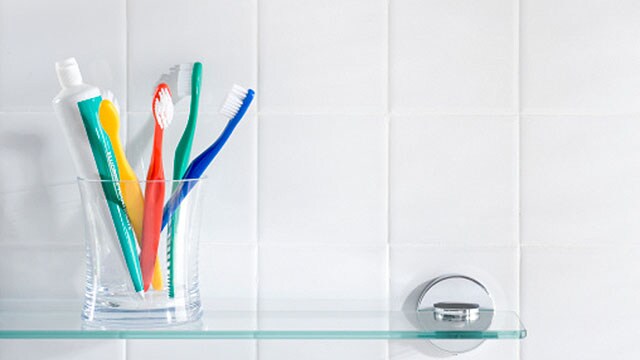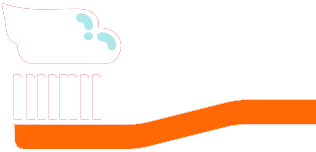You've got paperback and hardcovers for your books, warm comfy covers atop your bed, and even a snazzy headcover for your 3-wood. They protect what's on the inside, making sure it stays safe, unharmed, and clean. So what about a cover for your toothbrush? Does it help? Does it protect? Does it shield your toothbrush from all of the bacteria found in your mouth? Or does it hurt? Does it attract other bacteria outside your mouth? Read on to discover if a toothbrush cover is your friend or foe.

Should You Use A Toothbrush Cover?
Medically Reviewed By Colgate Global Scientific Communications
How To Disinfect Your Toothbrush
Like most things, you want to keep your toothbrush clean, right? Right. But how clean? If you want to sanitize it, there are gadgets and solutions for that. And they're great at cleaning your toothbrush. But cleaning or sanitizing it doesn't make your toothbrush 100% germ-free. Sorry. Sterilizing or disinfecting, on the other hand, does eliminate all bacteria on your brush. However, according to the American Dental Association (ADA), microbial mouthwash or hydrogen peroxide hasn't been found to disinfect your toothbrush effectively. The same goes for a dishwasher or microwave. And while a toothbrush cover may help protect your toothbrush from outside germs, it traps in moisture, leading to bacteria growth and not the good kind, according to the ADA. So — remove and throw away those covers.
What Are Some Toothbrush Care Recommendations
We've learned that completely sterilizing your toothbrush can be difficult. And sanitizing, while feasible, is still somewhat challenging. But basic care for your toothbrush is very achievable. Some of these tips from the ADA you may already be doing regularly, and some you may be able to integrate into your toothbrush storage routine.
- Everyone in the family gets their own toothbrush as sharing increases the risk for infection.
- Rinse your toothbrush, ideally with hot water, after each use to remove toothpaste and food debris
- Put your toothbrush away far from contaminants in an upright position so it can air dry as necessary.
- Get a new toothbrush every 3-4 months or sooner for children or if you've been sick.
What About Toothbrush Germs
Similar to yogurt and your mouth, some bacteria are okay. In fact, the ADA has found that your toothbrush bacteria has not been proven to harm your oral health. So what exactly is the whole relationship between you and bacteria? Glad you asked. Here are a few things to know:
- Bacteria is a constant within your body, both good and bad.
- It fights off the bad kind that creates infections in 2 ways — through passive and active mechanisms.
- Passive barriers include skin and mucous membranes that keep germs from entering your body.
- If your skin or membranes aren't up for the job, antibodies (like white blood cells), digestive acids, and enzymes step up to protect you from the disease.
- If your immune system is compromised or if you're battling an illness that's transferable via saliva or blood, preventive measures to limit bacterial contamination on your toothbrush would be wise.
How To Avoid Infection On Your Toothbrush
You now know not to use a cover on your toothbrush. But if you're undergoing a systemic disease, the flu, chemotherapy, or radiation and you're more prone to infections, additional measures to curb any bacteria exposure is recommended. Those additional measures include:
- Replacing your toothbrush much more frequently than every 3-4 months
- Try using antimicrobial mouthwash on your toothbrush.
- Use a toothbrush sanitizer that's approved by the Food and Drug Administration.
- And always wash your hands before brushing, so you don't transfer any germs from hand to mouth.
Should you cover your toothbrush? Nope. That's not the answer. But keeping your bathroom clean, maintaining good oral hygiene, and using good old common sense will go a long way in keeping your mouth and toothbrush fresh and clean. If you have any concerns, reach out to your dental care team. They'll be sure to uncover the truth on any oral health or toothbrush questions you may have.
This article is intended to promote understanding of and knowledge about general oral health topics. It is not intended to be a substitute for professional advice, diagnosis or treatment. Always seek the advice of your dentist or other qualified healthcare provider with any questions you may have regarding a medical condition or treatment.







